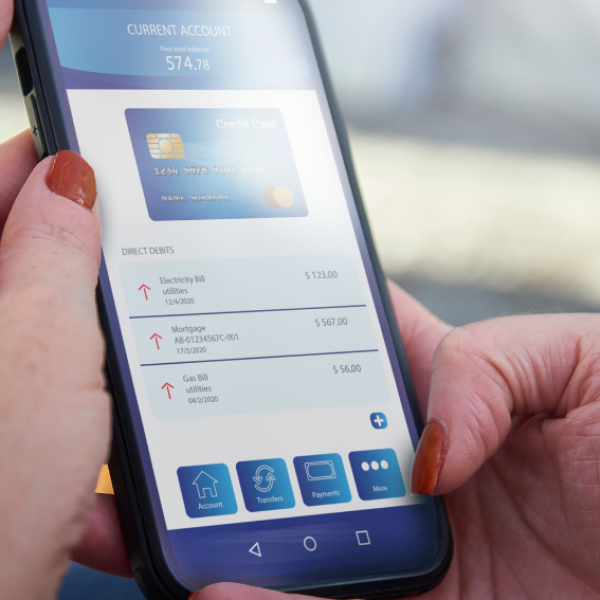Real-time payments have become the standard in the payments industry due to their speed and ease of integration into daily life. Modern smartphones allow credit or debit card details to be stored in Apple Pay or Google Wallet, making funds available for various transactions.
Despite this, some may not be aware of the critical role that technologies like Account Funding Transactions (AFTs) play in enabling this seamless experience. In this context, let’s look closer at AFT transactions, how they work, and the benefits they provide.
In This Article
ToggleWhat are Account Funding Transactions (AFT)?

A direct money transfer from a cardholder’s account to another non-merchant account, like a bank or financial institution, is an AFT (Account Funding Transaction). This transaction takes funds from the cardholder’s Mastercard or Visa account to fund an additional account. Prepaid cards, e-wallets, and other financial account loading are among the services that frequently use AFTs. To complete this transaction, the payment service provider must “draw” money from the cardholder’s account.
AFTs serve various purposes, including:
- Updating accounts for prepaid cards
- Transferring money to a savings account or another account
- Providing capital for peer-to-peer (P2P) money transfers
- Using a credit card to load digital wallets owned by third parties
The cardholder initiates the transaction through an AFT transaction with a merchant (like your company). The card network (Mastercard or Visa) receives an AFT message from the acquirer, which is the bank or other financial organization chosen to handle payments. After authorization, the payment service provider withdraws funds from the sender’s account and transfers them to the receiving account selected by the cardholder through an Original Credit Transaction (OCT).
What Are the Features of Account Funding Transactions?

An Account Funding Transaction (AFT) is an invaluable tool for businesses, financial institutions, and consumers. Here are key reasons to consider AFT transactions:
- Convenience: AFTs enable consumers to receive funds directly on their card, removing the need to deposit a check or visit a bank, making spending or withdrawing funds easier.
- Global Reach: AFTs allow businesses to send payments worldwide to cards within networks like Visa or Mastercard, offering a global solution.
- Security: Supported by established card networks, AFTs provide robust security features, including fraud detection and prevention measures, ensuring safe transactions for both businesses and consumers.
- Speed: AFTs are generally much quicker than traditional bank transfers. This is especially beneficial for businesses needing to disburse funds rapidly, such as refunds, rewards, or vendor payouts.
- Versatility: AFTs can be used for various purposes, such as funding prepaid cards, transferring money to other accounts, and serving as a source for person-to-person transfers.
- Traceability: Every AFT transaction includes a unique identifier, simplifying tracking and reconciliation and aiding accounting and auditing processes.
- Reduced Costs: AFTs (Account Funding Transactions) can often be more cost-effective than other forms of fund disbursement. They help reduce administrative costs and resources associated with issuing paper checks.
How Is an Account Funding Transaction (AFT) Different From Original Credit Transaction (OCT)?
AFT (Account Funding Transaction) and OCT (Original Credit Transaction) are key transaction types integral to electronic funds transfers, mainly through Visa and Mastercard networks.
An AFT transaction pulls funds from a cardholder’s account. This transaction type is commonly used for topping up prepaid cards, transferring funds between accounts, or funding digital wallets and person-to-person (P2P) transfers. AFTs offer faster, more convenient, and traceable payments than traditional bank transfers, benefiting businesses and consumers. They also utilize the security infrastructure of card networks, enhancing transaction security.
On the other hand, an OCT is a push transaction that credits funds directly to a cardholder’s account. OCTs are frequently used for refunds, payouts, and rewards. They are quick, convenient, and can be managed entirely online, making them a flexible option for businesses.
In summary, AFTs and OCTs work in tandem to facilitate the seamless movement of funds into and out of accounts. Both transaction types support real-time, secure, and efficient global payment processing through Visa and Mastercard networks.
What Are the Benefits of Account Funding Transactions for Merchants and Customers?
- For Merchants:
AFT transactions provide numerous advantages for merchants. They enable rapid settlements, helping businesses manage cash flow effectively and efficiently handle large transaction volumes. With a global reach extending to over 200 countries, AFTs allow merchants to tap into broader markets and expand their customer base.
These transactions also lower administrative costs by automating complex payment processes, including cross-border disbursements. Security is another major benefit, as AFTs use the robust infrastructure of card networks like Visa and Mastercard, incorporating fraud detection measures. Additionally, AFTs generate unique, traceable transaction identifiers, simplifying business accounting and auditing procedures.
- For Customers:
AFT transactions provide customers with a streamlined way to manage their funds. They allow for quick and convenient transactions, including direct fund transfers, digital wallet top-ups, and peer-to-peer payments. The widespread availability of AFTs, wherever Visa and Mastercard are accepted, makes them ideal for international transactions.
Additionally, the security features integrated into the card network infrastructure help protect against fraud. AFTs also offer transparent transaction identifiers, enabling customers to easily monitor and track their financial activities.
Different Account Funding Transactions Products
Several major financial institutions and payment service providers offer products that support Account Funding Transactions (AFTs). These products utilize various networks to enable fast and secure transactions.
- Visa Direct:
Visa Direct is a product offered by Visa that supports both AFTs and Original Credit Transactions (OCTs) through the VisaNet network. This solution allows businesses to pull funds from a Visa account via an AFT and push funds to Visa card accounts through an OCT. Visa Direct also provides APIs for fund transfers, mobile payments, and watchlist screening.
- Mastercard Send:
Mastercard offers a service called Mastercard Send, which supports AFTs and OCTs. This service enables quick payments to various recipients, including consumers, gig workers, and businesses worldwide. Mastercard Send offers real-time payments across multiple endpoints, including card accounts, bank accounts, and other financial networks.
Other Popular Products Include These:
- PayPal:
PayPal offers comprehensive services, including direct payments similar to AFTs and OCTs. Users can send funds directly to others or load them onto their accounts. The Payments Standard and Pro services integrate into websites and apps, enabling seamless online transactions. Additionally, PayPal supports in-person payments through its card reader hardware and app, offering various services across various payment types.
- Stripe:
Stripe specializes in providing a highly customizable online payment experience. Its primary service is an API that integrates into websites and apps, enabling efficient online payment processing. Stripe’s Checkout and other services streamline transactions, supporting AFTs and other fund transfers. Stripe is also particularly developer-friendly, allowing seamless integration and scaling to support growing businesses.
- Square:
Square offers a comprehensive suite of services, including in-person and online payments. The Square POS system and hardware facilitate AFTs and other transactions, sending funds directly to different accounts. The Square ecosystem supports in-person, remote, and manual payments, making it a versatile business choice.
Conclusion
Account Funding Transactions (AFTs) are indispensable in modern finance yet often underestimated. Facilitating swift and secure fund transfers between accounts, AFTs offer businesses and consumers unparalleled convenience and efficiency. By harnessing AFTs alongside Original Credit Transactions (OCTs), companies can streamline transactions, manage cash flow effectively, and expand globally.
Consumers benefit from seamless peer-to-peer payments, transparent tracking, and robust fraud protection. With established networks like Visa and Mastercard backing them, AFTs represent a cornerstone in the evolution of financial transactions, ensuring a frictionless and secure experience for all parties involved. Embracing the potential of AFTs is crucial in navigating the dynamic landscape of modern finance.
Frequently Asked Questions
What is an AFT (Account Funding Transaction)?
An AFT pulls funds from an account to fund a non-merchant account, often used for prepaid cards, digital wallets, or P2P payments. It involves debiting funds from a Visa or Mastercard account for transactions like payouts or refunds.
How is an AFT different from an OCT (Original Credit Transaction)?
AFTs withdraw funds from a cardholder’s account to fund another, while OCTs directly credit payments to a cardholder’s account. They complement each other in transaction cycles, with AFTs pulling funds and OCTs pushing funds.
Why should businesses use AFT transactions?
They offer speed, convenience, security, and global reach. AFTs provide direct fund delivery, robust security, and faster international transaction capabilities than traditional bank transfers.
What are some use cases for AFT transactions?
Versatile applications include P2P transfers, digital wallet top-ups, marketplace payouts, and cross-border payments. They facilitate fund transfers between individuals, loading e-wallets, disbursing earnings, and international transactions.










